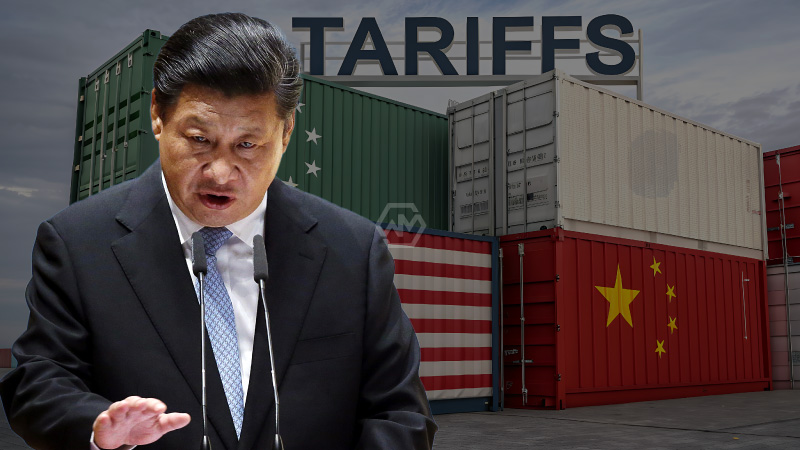- US imposes up to 245% tariffs on Chinese imports, citing retaliation from Beijing.
- Hong Kong suspends US-bound parcel shipments as exemption rules end.
- China vows it “won’t stay silent,” urging the US to stop maximum pressure tactics.
The United States has intensified its trade war with China by slapping up to 245% tariffs on Chinese imports. This is the steepest yet in a series of retaliatory moves.
China’s reaction was swift and strong. While denying any halt in Boeing jet orders, the Chinese foreign ministry criticized Washington’s “wanton use of force”. Beijing warned that it would not remain silent under pressure.
Tariff Tensions Escalate: China Pushes Back as US Targets Hong Kong and Beijing Trade
China has condemned the United States for sharply raising tariffs on its imports to as high as 245%, calling the move aggressive and unjust. Chinese officials accused the US of escalating tensions through intimidation. Rather than seeking resolution through diplomacy, the US is raising tensions. Beijing reiterated its stance of non-confrontation but stressed that it would not be passive in the face of “maximum pressure.”
The US decision has also upended Hong Kong’s trade logistics. By removing the “de minimis” exemption for shipments under $800, Washington has effectively slapped a 120% tariff on small parcels. This prompted Hong Kong to halt non-airmail packages to the US. Hong Kong also ceased collecting duties on Washington’s behalf, labeling the move as “bullying.”
President Trump’s administration maintains that these tariffs are necessary to rebalance global trade. They also claim these tariffs protect American manufacturing interests. The White House states that over 75 countries are now discussing new trade deals. This suggests a wider realignment is underway. However, critics argue the costs of such aggressive tactics may outweigh the gains.
Despite denials from Beijing regarding a reported halt in Boeing jet deliveries, analysts note that aerospace and high-tech sectors remain sensitive pressure points. The lack of clarity on whether industrial giants are being targeted further fuels uncertainty. The US-China trade relationship is already strained.
The US-China trade dispute is evolving into a broader economic standoff. There is no quick resolution in sight. Each side is escalating pressure while claiming the moral high ground.
“If the US truly wants to resolve issues through dialogue, it must stop exerting maximum pressure.” — Chinese Foreign Ministry Spokesperson



